Acne vulgaris affects about 50 million people in the United States1. This common skin condition impacts 85% of those aged 12-242. While it’s most common in teens, acne can occur at any age.
As an acne sufferer, I know the emotional toll it can take. Acne can appear on the face, chest, back, and shoulders1. Oily skin, genetics, and family history can increase your risk2.
Many treatment options exist for acne vulgaris. These include topical medications, antibiotics, hormonal agents, and isotretinoin. These target excess oil, bacteria, and inflammation. Your dermatologist can help create a plan to manage your acne effectively.
We’ll explore various treatments and lifestyle changes for clearer skin. There’s hope for improvement, no matter your acne severity. Let’s discover the best options for you!
Key Takeaways
- Acne vulgaris is a common chronic inflammatory skin disorder affecting millions of people in the United States.
- Acne can occur at any age, but it is most prevalent during adolescence and early adulthood.
- Factors such as oily skin, genetics, and hormonal changes can contribute to the development of acne.
- Treatment options for acne vulgaris include topical medications, systemic therapies, and lifestyle modifications.
- Working with a dermatologist to develop a personalized treatment plan can help effectively manage acne and prevent scarring.
Visit us for reviews on top beauty supplies. We cover acrylic nails, nail polish remover, and hair color kits. Find info on hair growth serums, skincare routines, and dry skin moisturizers. We also feature vegan and cruelty-free makeup options.
What is Acne Vulgaris?
https://www.youtube.com/watch?v=ys_R4KZYj24
Acne vulgaris is a widespread skin condition affecting millions globally. It occurs when hair follicles get clogged with oil and dead skin cells. This leads to various acne lesions, including comedones, papules, pustules, and nodules3.
Causes and Risk Factors
Acne results from increased sebum production, follicular hyperkeratinization, Cutibacterium acnes bacteria, and inflammation. Genetic factors play a significant role, with heritability estimates between 50% and 90%3.
Other risk factors include hormonal changes, certain medications, and high glycemic load diets. Psychological stress and insulin resistance also contribute to acne severity3.
- Hormonal changes, particularly during adolescence and in females
- Certain medications, such as corticosteroids and lithium
- High glycemic load diets and increased milk consumption3
- Psychological stress, which is associated with increased acne severity3
- Insulin resistance, linked to increased facial sebum excretion3
Urban populations face higher acne rates than rural ones. Asians and Africans are more prone to severe acne. Mild acne is more common in White populations3.
Types and Severity of Acne Lesions
Acne lesions are either non-inflammatory or inflammatory. Non-inflammatory lesions are comedones, including blackheads and whiteheads. Inflammatory lesions comprise papules, pustules, and nodules, which can lead to scarring.
About 20% of people with acne develop severe forms resulting in scarring3. The severity depends on the type and number of lesions present.
| Acne Lesion Type | Characteristics |
|---|---|
| Comedones (non-inflammatory) | Open (blackheads) or closed (whiteheads) clogged pores |
| Papules (inflammatory) | Small, red, raised bumps |
| Pustules (inflammatory) | Pus-filled lesions with a red base |
| Nodules (inflammatory) | Large, painful, solid lumps beneath the skin’s surface |
Knowing acne’s causes, risk factors, and types helps create effective treatment plans. Tailoring solutions to individual needs is crucial for managing this condition.
For top beauty supply reviews, explore our site. Find the best products for skincare, makeup, and hair care. We cover everything from nail polish removers to anti-aging creams.
Topical Treatments for Acne Vulgaris
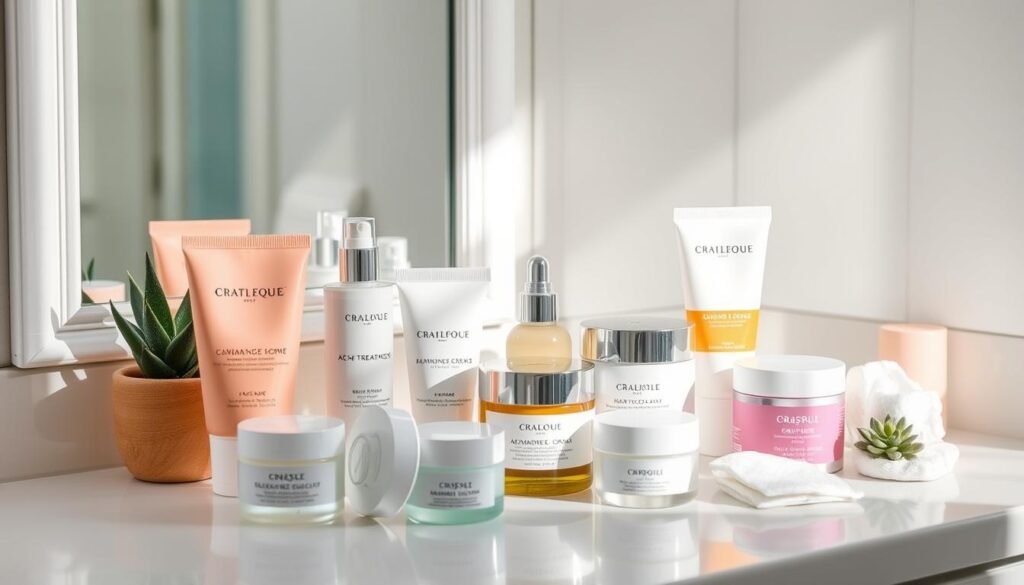
Topical treatments are key for mild to moderate acne vulgaris. They target excess oil, clogged pores, and bacterial growth. Let’s look at some effective options for clearer skin.
Benzoyl Peroxide
Benzoyl peroxide is a common over-the-counter acne fighter. It kills acne-causing bacteria and reduces inflammation4. You can find it in cleansers, gels, and creams with 2.5% to 10% concentrations.
Topical Retinoids
Vitamin A derivatives like tretinoin, adapalene, and tazarotene are potent acne treatments. They prevent clogged hair follicles and boost cell turnover5. Retinoids work well for both comedonal and inflammatory acne lesions56.
Topical Antibiotics
Clindamycin and erythromycin kill excess skin bacteria and calm inflammation. They’re often paired with benzoyl peroxide or retinoids for better results6. Topical dapsone is another effective option for mild-to-moderate acne.
Azelaic Acid and Salicylic Acid
Azelaic acid, available in 20% cream or gel, effectively treats acne5. Salicylic acid, a beta-hydroxy acid, unclogs pores and reduces inflammation. It’s found in many over-the-counter acne products.
| Topical Treatment | Mechanism of Action | Formulations |
|---|---|---|
| Benzoyl Peroxide | Antibacterial, reduces inflammation | Cleansers, gels, creams (2.5%-10%) |
| Topical Retinoids | Prevents plugging of hair follicles, promotes cell turnover | Tretinoin, adapalene, tazarotene |
| Topical Antibiotics | Kills excess skin bacteria, reduces inflammation | Clindamycin, erythromycin, dapsone (5% twice-daily, 7.5% once-daily) |
| Azelaic Acid | Reduces inflammation, unclogs pores | 20% cream or gel |
| Salicylic Acid | Unclogs pores, reduces inflammation | Cleansers, spot treatments |
Combining retinoids with antimicrobials is the top choice for most acne patients. This approach tackles multiple factors and works better than single treatments6. Always follow instructions to avoid side effects and get the best results.
Remember, everyone’s skin is unique, and what works for one person may not work for another. If you’re unsure about which topical acne treatment is right for you, don’t hesitate to consult with a dermatologist or skincare professional.
We offer reviews on various beauty products. These include foundations for oily skin, nail polish removers, and hair color kits. We also cover anti-aging creams, acrylic nails, and makeup brushes.
Find info on hair growth serums, dry skin moisturizers, and vegan beauty items. We review cruelty-free makeup, skincare routines, and beauty blenders too. Check back often for the latest updates!
Systemic Treatments for Acne Vulgaris
Systemic acne treatments tackle stubborn acne from within the body. They target bacterial overgrowth, inflammation, and hormonal imbalances. These treatments are crucial when topical options fail to manage moderate to severe acne.
Oral Antibiotics
Oral antibiotics fight moderate to severe inflammatory acne. They reduce Cutibacterium acnes bacteria, which trigger inflammation through toll-like receptor 27. Effective options include tetracyclines (minocycline, doxycycline) and macrolides (erythromycin, azithromycin)8.
However, these antibiotics can cause side effects. These may include dyspepsia, yeast infections, and photosensitivity. In rare cases, they can lead to lupus-like syndrome or single-organ dysfunction8.
Hormonal Agents
Hormonal agents effectively treat acne in women. These include combined oral contraceptives and spironolactone. They work by reducing androgen levels, which stimulate sebaceous glands and follicular hyperkeratinization87.
FDA-approved Ortho Tri-Cyclen contains norgestimate, a third-generation progestin. It’s particularly effective for moderate inflammatory acne8. Spironolactone, an anti-androgen medication, treats severe acne safely9.
However, at high doses, spironolactone may cause hyperkalemia. This risk is higher in patients with renal insufficiency or heart failure9.
Isotretinoin
Isotretinoin, a powerful vitamin A derivative, treats severe, resistant acne. It reduces sebum production, inflammation, and Cutibacterium acnes bacteria. Starting doses range from 0.2 to 0.5 mg/day, potentially increasing to 1 mg/day9.
Despite its effectiveness, isotretinoin can cause significant side effects. Close monitoring by a dermatologist is essential during treatment.
Understanding these treatments helps make informed decisions about acne management. Consult a dermatologist to find the right combination for clearer, healthier skin. For more beauty tips, check our reviews on various products.
We cover the best foundation for oily skin, vegan beauty products, and cruelty-free makeup. You’ll also find top picks for moisturizers, hair growth serums, and hair color kits. Don’t miss our recommendations for acrylic nails, nail polish removers, and skincare routines.
what is acne vulgaris treatment

Acne vulgaris affects 40 to 50 million Americans of all ages, races, and backgrounds10. It’s the most common skin disorder in the United States. Treating acne often requires a mix of therapies and lifestyle changes.
Combination Therapies
Combination acne therapy uses multiple medications to target acne from various angles. Topical retinoids and oral antibiotics are common prescriptions for acne treatment10. Topical antibiotics work better with benzoyl peroxide to control acne-causing bacteria11.
Benzoyl peroxide treats inflammatory acne but may not help blackheads or nodulocystic acne10. Combining these treatments often leads to better results than using them alone.
Lifestyle Changes and Skincare Routine
Lifestyle changes and gentle skincare can improve acne management. Protect your skin from the sun and avoid picking at acne lesions. Exercise can help reduce stress, which may worsen acne10.
Use mild soap or cleanser and non-comedogenic products in your skincare routine. Women may have acne outbreaks before their period. Birth control pills can help manage this10.
The FDA has approved certain birth control pills for treating acne. These contain a mix of estrogen and progesterone11. A high-protein, low glycemic-load diet can reduce acne lesions by 57%12.
Alternative and Complementary Treatments
Tea tree oil, a natural antiseptic, can treat acne spots. Brewer’s yeast may improve skin health and reduce acne. Zinc supplements might help with acne-prone skin.
Laser and light therapy can treat acne scars. They stimulate new skin growth11. Chemical peels remove old skin and promote smoother, scar-free skin11.
Acne can affect mental health, causing anxiety, depression, and low self-esteem10. Seek emotional support and proper medical treatment. Consult a dermatologist for a personalized treatment plan.
Consistent skincare and patience are key to achieving clear, healthy skin. Don’t give up on your acne treatment journey.
Check back often for the best reviews on beauty supplies, including the best cruelty-free makeup, best foundation for oily skin, best anti-aging cream, best moisturizer for dry skin, best makeup brushes, best vegan beauty products, best hair growth serum, best acrylic nails, best hair color kit, best nail polish remover, best beauty blender, and the best skincare routine.
Conclusion
Acne vulgaris is a widespread skin issue. It affects about 85% of people aged 12 to 2513. While it’s most common in teens, many adults also struggle with acne14.
There are many treatment options for acne vulgaris. These can be tailored to each person’s needs and the severity of their condition. Topical treatments are often used first for mild to moderate acne14.
These include benzoyl peroxide, retinoids, and antibiotics like clindamycin and erythromycin. For more severe cases, doctors may prescribe systemic treatments14. These can include oral antibiotics, hormonal agents, and isotretinoin.
Combination therapies and lifestyle changes can also help. A consistent skincare routine is important too. Working with a dermatologist is key to developing a personalized plan.
With the right approach, people can achieve clearer, healthier skin. This can boost confidence and improve overall well-being. Patience and persistence are crucial in managing acne vulgaris.
Check back often for the best reviews on beauty supplies. We cover the best makeup brushes, anti-aging cream, hair growth serum, and foundation for oily skin. You’ll also find reviews on acrylic nails, vegan beauty products, and moisturizer for dry skin. We cover cruelty-free makeup, beauty blenders, skincare routines, nail polish removers, and hair color kits.
FAQ
What is acne vulgaris?
What causes acne vulgaris?
What are the types of acne lesions?
What are the topical treatments for acne vulgaris?
What are the systemic treatments for acne vulgaris?
What is the most effective treatment for severe acne vulgaris?
Can lifestyle changes help manage acne vulgaris?
Are there any alternative or complementary therapies for treating acne vulgaris?
How can I prevent acne vulgaris?
Source Links
- Your Guide to Acne Vulgaris – https://www.verywellhealth.com/what-is-acne-vulgaris-15492
- Sorry, but You’re Never ‘Too Old’ for Acne: 7 Reasons Why You’re Getting Zits Even as You Age – https://www.health.com/acne-vulgaris-7973570
- Acne Vulgaris – StatPearls – NCBI Bookshelf – https://www.ncbi.nlm.nih.gov/books/NBK459173/
- Acne Vulgaris: Treatment Guidelines from the AAD – https://www.aafp.org/pubs/afp/issues/2017/0601/p740.html
- Acne – Diagnosis and treatment – https://www.mayoclinic.org/diseases-conditions/acne/diagnosis-treatment/drc-20368048
- Medical Care, Surgical Care, Consultations – https://emedicine.medscape.com/article/1069804-treatment
- Systemic pharmacological treatments for acne: an overview of systematic reviews – https://www.ncbi.nlm.nih.gov/pmc/articles/PMC8614637/
- Use of Systemic Agents in the Treatment of Acne Vulgaris – https://www.aafp.org/pubs/afp/issues/2000/1015/p1823.html
- Systemic Therapies for the Treatment of Acne – https://www.dermatologyadvisor.com/features/medications-for-acne/
- Acne Vulgaris: Symptoms, Pictures, Treatments, and More – https://www.healthline.com/health/skin-disorders/acne-vulgaris
- Acne: Types, Causes, Treatment & Prevention – https://my.clevelandclinic.org/health/diseases/12233-acne
- Acne Vulgaris: Practice Essentials, Background, Pathophysiology – https://emedicine.medscape.com/article/1069804-overview
- Frontiers | The management of acne vulgaris in young people in primary care: A retrospective cohort study – https://www.frontiersin.org/journals/medicine/articles/10.3389/fmed.2023.1152391/full
- Frontiers | Acne treatment: research progress and new perspectives – https://www.frontiersin.org/journals/medicine/articles/10.3389/fmed.2024.1425675/full

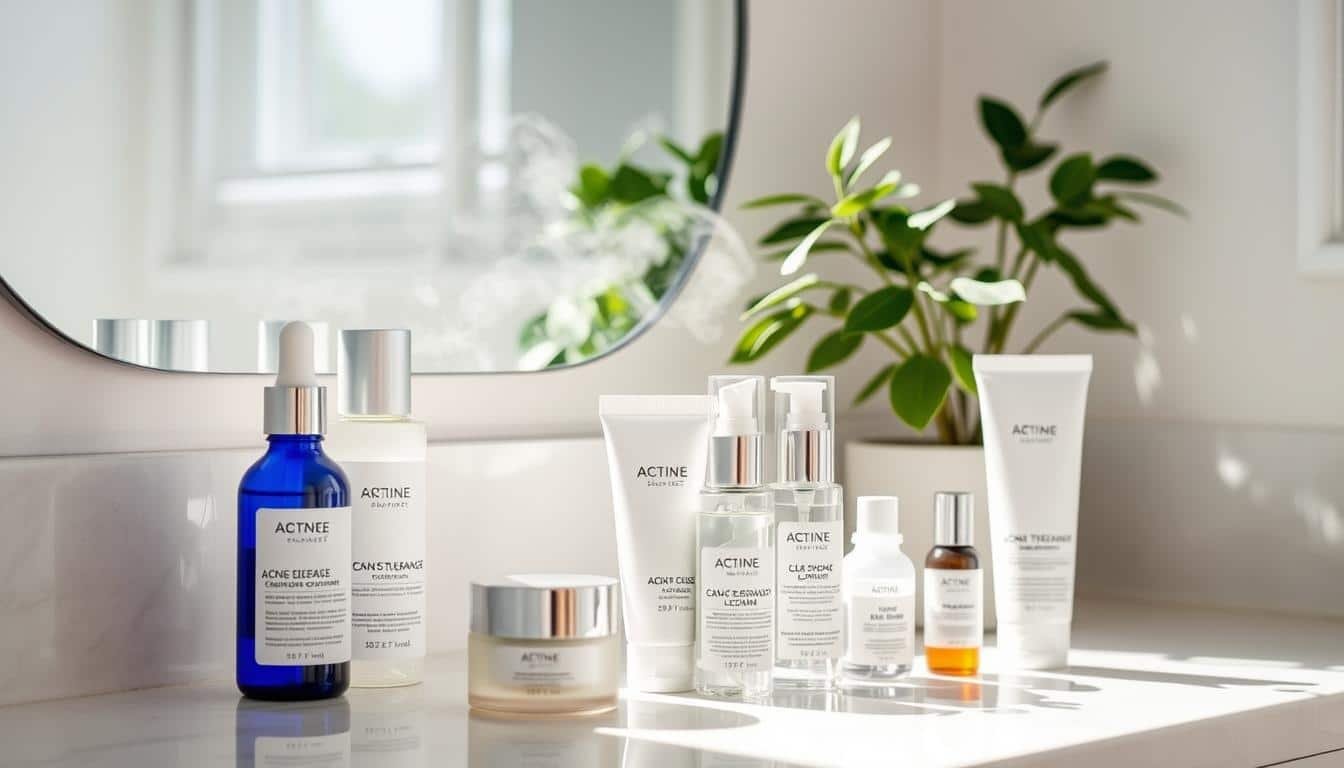

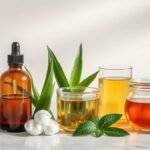
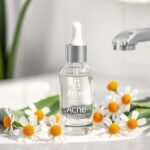

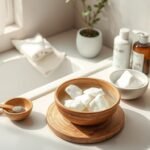
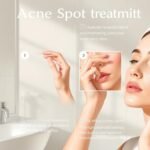
This article makes it seem like acne is just skin-deep. Ever consider how much our mental health contributes to breakouts?
Interesting read, but isnt it possible that our diet plays a bigger role in acne vulgaris than these treatments suggest?
Interesting read, but dont you think were over-complicating? My grandma swears by soap and water, and her skin is flawless!
Anyone else think diets role in acne is undervalued? We focus too much on topical treatments, not enough on nutrition.
Totally disagree! Topical treatments work wonders for many. Its not always about diet!
Interesting read, but isnt over-reliance on pharmaceuticals for acne just masking the underlying lifestyle and diet issues? Thoughts?
Interesting article, but ever wonder if Big Pharma purposely doesnt find a permanent cure for acne to keep making money? Just saying.
Interesting read but isnt the overuse of acne treatments causing antibiotic resistance? Lets discuss natural remedies more, folks! #FoodForThought
Natural remedies arent a one-size-fits-all. Some folks need medication. #NotJustFoodForThought
Interesting read, but arent we overlooking the psychological impact of acne? Its not just about physical treatment, mental health matters too!
Absolutely, mental health is often neglected. Acne isnt just skin-deep, its soul-deep too.
Is it just me or does anyone else also think diet impacts acne more than any treatment options listed in the article?
Interesting read, but dont you think our obsession with flawless skin fuels the acne treatment industrys profits? Just a thought.
Anyone else think that over-treating acne might actually make it worse? Could we be throwing off our skins natural balance?
Interesting read, but isnt it time we stop stigmatizing acne? Maybe the real treatment is just acceptance, not a cream or pill.